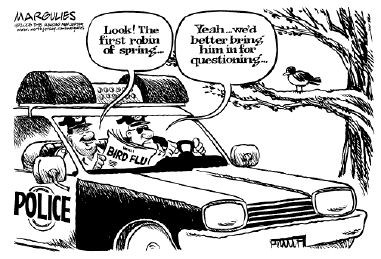Century Marks

The hidden Jesus: After the end of the Japanese occupation of Burma in 1945, the minority population of Christians feared for their lives in the face of some Buddhist mobs. Myanmar theologian Anna May Chain said that during this time her family was taken in by friendly Muslims—the males were hidden in a mosque and the females were led from one safe house to another. Later they were sheltered in a prison where Buddhists jeopardized their own well-being by bringing them food, medicine and clothes. They finally found refuge in a convent run by Catholics, then considered “outsiders” by Protestants. At this very vulnerable time in the life of her family, said Chain, Muslims, Buddhists and Catholics were like Jesus to them, offering hospitality and charity (address at the World Council of Churches Ninth Assembly).
Honest résumés: Kimberley C. Patton, who teaches comparative religion at Harvard Divinity School, says that students ask her how to account for “missing years” or unproductive gaps in their résumés when applying for graduate programs or jobs in parish ministry. She tells them to be honest about these gaps: “Say, ‘I took in a child whose mother was in prison. . . . I battled an addiction, and I won. My husband was crushed by a boulder that fell in our own backyard, and I tended his grave. . . . My marriage made in heaven turned to hell. . . . I took photos of skulls left by the Khmer Rouge.’” Those are some of the things that actually happened in the lives of her students. Says Patton, “The gaps on the résumé are the abysses into which we fall from time to time, and in the process, fall into the hands of the living God” (Harvard Divinity Bulletin, Winter).
Civil disobedience: In an Ash Wednesday service, Cardinal Roger M. Mahony of Los Angeles said he would instruct his priests to defy legislation—in the event that it is passed—that would require churches and other social organizations to ask immigrants for legal documentation before providing assistance. “If you take this to its logical, ludicrous extreme, every single person who comes up to receive Holy Communion, you have to ask them to show papers,” Mahony said to the Los Angeles Times (March 1). “It becomes absurd and the church is not about to get into that. The church is here to serve people. . . . We’re not about to become immigration agents.”
City of God? Tom Monaghan, founder of Domino’s Pizza and a conservative lay Catholic, is developing a town from scratch in southwestern Florida. The town, Ave Maria, will be anchored by a massive cathedral built with Monaghan’s own money and will incorporate a Catholic university and 11,000 homes. He expects the town to be run according to his conservative values. For instance, he doesn’t want its pharmacies to sell contraceptives. “I believe all of history is just one big battle between good and evil. I don’t want to be on the sidelines,” says Monaghan (Newsweek, February 27).
St. Thurgood: Although Anglicans don’t have the same canonization process as the Roman Catholic Church, there is a movement among Episcopalians to make the late Supreme Court justice Thurgood Marshall a saint. Marshall, the first African American on the Supreme Court, argued Brown v. Board of Education, the 1954 case that outlawed segregation in public schools. It is proposed that the feast day for Marshall be May 17—the date the landmark case was won. Sainthood requires a two-step assent by the General Assembly of the Episcopal Church (Chicago Tribune, February 27).
Winners all: During March, women’s history month, the National Book Foundation recommends reading female authors whose books were the first to win awards in the different National Book Awards categories. The first winner in nonfiction was Rachel Carson for The Sea Around Us (1952); in poetry: Marianne Moore, Collected Poems (1952); in fiction: Katherine Anne Porter, The Collected Stories of Katherine Anne Porter (1966); and in young people’s literature: Ursula K. Le Guin, The Farthest Shore (1973).
A time to build? A University of Chicago research team discovered that 79 percent of the blacks surveyed believe that the federal government should spend whatever is necessary to rebuild New Orleans and restore people to their homes, while only 33 percent of the whites in the poll concurred. The researchers believe this racial divide accounts for the lack of national will to rebuild the city (University of Chicago Chronicle, February 2).
Not Robertson again: Although he attended only one meeting, Pat Robertson was a member of the board of the National Religious Broadcasters for 30 years. Robertson lost a recent bid for reelection, in part because some of the religious broadcasters were offended by certain of his public statements. In recent months he said that Venezuelan president Hugo Chavez should be assassinated and that Israeli prime minister Ariel Sharon’s stroke was divine punishment for giving the Gaza Strip back to the Palestinians (AP).
Grain of salt: In a correction in its February 13 issue, Newsweek admitted having misquoted Jerry Falwell. In the previous issue it quoted the evangelist as having spoken of an “assault ministry,” whereas he was actually referring to “a salt ministry,” based on Jesus’ saying “You are the salt of the earth” (Matt. 5:13).





